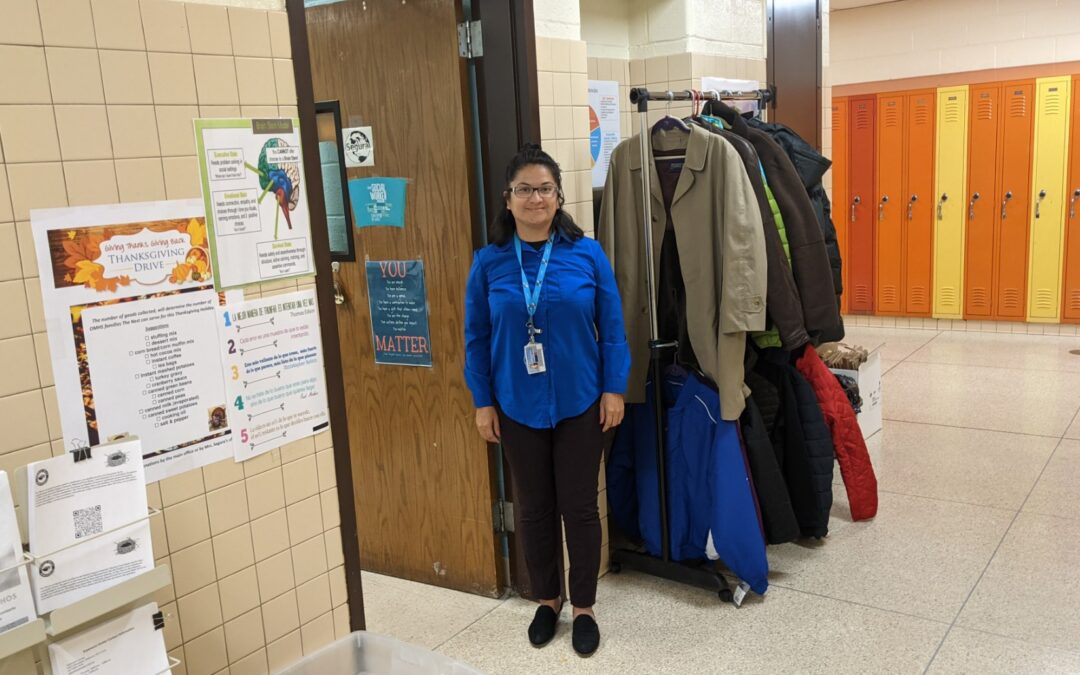In any network, an array of parts or people are needed to accomplish the system’s purpose. This is certainly true at the Student Support Network, which wouldn’t function without a variety of volunteers, school principals and administrators, donors, staff members, teachers, and school counselors and social workers. Ms. Enedina Segura serves as a vital connector of students and services, in her role as the ESOL Community Coordinator at Owings Mills High School.
Ms. Segura, a social worker, thrives on helping teenage students remove roadblocks to achieving their goals leading up to and after graduation. At Owings Mills High School, where English is a second language for more than 30% of students, these goals vary widely. Some students aim to find work, others to attend college, some wish to feel independent. The challenges students face in pursuit of their goals vary just as widely – language barriers, documentation, academic struggles, hunger, even fear.
“The Nest,” the Student Support Network Room of Support at OMHS, is one of many resources Ms. Segura taps to help her students overcome barriers. It’s still a young program, having launched near the beginning of the COVID-19 pandemic, just before students switched to virtual learning. So, Ms. Segura spends a great deal of time and creative energy on getting the word out to the 1,100+ students at OHMS that they have a place to go when they’re hungry, need a new notebook or backpack, or are preparing for their first Mid-Atlantic winter.
By displaying coats on a rack outside her office door, or handing out snacks from a basket as students head to the bus, Ms. Segura meets the students where they are comfortable, and offers help to everybody – so nobody must hesitate to ask. Once students know that supplies, clothing, and food are available, they return frequently and appreciatively. Once in her office, teens also engage personally with Ms. Segura, checking in when things get tough, and receiving encouragement and practical assistance from her.
Ms. Segura puts students who have recently immigrated at ease by sharing her own experience moving to the U.S. from Mexico when she was in middle school. She understands first-hand many of the challenges they face, and she can honestly tell students, “I hear you; I was there too,” when they share their difficulties, triumphs, and fears.
One wonderful thing about the Student Support Network, Ms. Segura attests, is that it offers help with no strings attached to young immigrants who may live in fear of questions asked by authority figures. “Many of our students will ask me, ‘are you sure this is free?’” Ms. Segura says, remarking that they often seem shocked by the kindness.
Another roadblock to achieving goals for adolescents who have immigrated or live in poverty may be a lack of trust in others. Through her sensitive and caring approach to her work, and via her partnership with the Student Support Network, Ms. Segura is surely helping to chip away at feelings of mistrust, one smile and one granola bar at a time.

